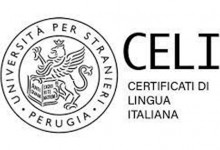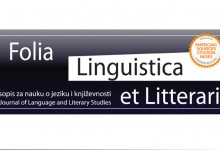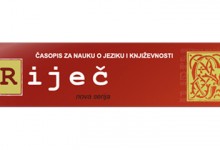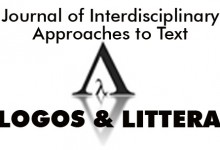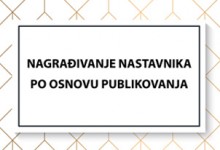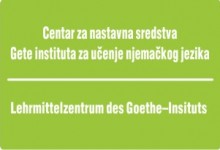Faculty of Philology / French language and literature / FRENCH I
| Course: | FRENCH I/ |
| Course ID | Course status | Semester | ECTS credits | Lessons (Lessons+Exercises+Laboratory) |
| 4625 | Obavezan | 1 | 8 | 2+6+0 |
| Programs | French language and literature |
| Prerequisites | |
| Aims | Acquainting students with contemporary lexical tendencies in the francophone area. Training students for a high C1.1 level of communication |
| Learning outcomes | 1. Understand modern lexical phenomena in the French language: abbreviations, acronyms, euphemisms, neologisms 2. Understand and use loanwords (especially anglicisms) and different types of idioms 3. Distinguish regional and francophone lexical varieties of the French language (Belgium, Switzerland, Canada, Africa) 4. Possess high language competences (oral and written comprehension and expression) of C1.1 level |
| Lecturer / Teaching assistant | Olivera Vušović, Assistant Professor |
| Methodology |
| Plan and program of work | |
| Preparing week | Preparation and registration of the semester |
| I week lectures | Abrègements de mots |
| I week exercises | Thème, version, dictée |
| II week lectures | Abréviations de la vie quotidienne et de la langue écrite |
| II week exercises | Thème, version, dictée |
| III week lectures | Sigles |
| III week exercises | Thème, version, dictée |
| IV week lectures | Acronymes |
| IV week exercises | Thème, version, dictée |
| V week lectures | Euphémismes |
| V week exercises | Thème, version, dictée |
| VI week lectures | Néologismes |
| VI week exercises | Thème, version, dictée |
| VII week lectures | Emprunts issus de la vie quotidienne |
| VII week exercises | Thème, version, dictée |
| VIII week lectures | Emprunts issus du monde du travail |
| VIII week exercises | Thème, version, dictée |
| IX week lectures | Emprunts avec modification |
| IX week exercises | Thème, version, dictée |
| X week lectures | Tournures idiomatiques |
| X week exercises | Thème, version, dictée |
| XI week lectures | Expressions comparatives |
| XI week exercises | Thème, version, dictée |
| XII week lectures | Expressions imagées |
| XII week exercises | Thème, version, dictée |
| XIII week lectures | Expressions culturelles |
| XIII week exercises | Thème, version, dictée |
| XIV week lectures | Variétés régionales |
| XIV week exercises | Thème, version, dictée |
| XV week lectures | Variétés francophones |
| XV week exercises | Thème, version, dictée |
| Student workload | |
| Per week | Per semester |
| 8 credits x 40/30=10 hours and 40 minuts
2 sat(a) theoretical classes 0 sat(a) practical classes 6 excercises 2 hour(s) i 40 minuts of independent work, including consultations |
Classes and final exam:
10 hour(s) i 40 minuts x 16 =170 hour(s) i 40 minuts Necessary preparation before the beginning of the semester (administration, registration, certification): 10 hour(s) i 40 minuts x 2 =21 hour(s) i 20 minuts Total workload for the subject: 8 x 30=240 hour(s) Additional work for exam preparation in the preparing exam period, including taking the remedial exam from 0 to 30 hours (remaining time from the first two items to the total load for the item) 48 hour(s) i 0 minuts Workload structure: 170 hour(s) i 40 minuts (cources), 21 hour(s) i 20 minuts (preparation), 48 hour(s) i 0 minuts (additional work) |
| Student obligations | Students are required to attend and participate in classes, do homework, do the test and the final exam. |
| Consultations | |
| Literature | Walter, Henriette. (2014). Le français dans tous les sens. Robert Laffont. Larger, N., & Mimran, R. (2004). Vocabulaire expliqué du français. CLE international. Larger, N., & Mimran, R. (2004). Vocabulaire expliqué du francais. Cahier dactivités. CLE international. |
| Examination methods | Test, homework, final exam |
| Special remarks | |
| Comment |
| Grade: | F | E | D | C | B | A |
| Number of points | less than 50 points | greater than or equal to 50 points and less than 60 points | greater than or equal to 60 points and less than 70 points | greater than or equal to 70 points and less than 80 points | greater than or equal to 80 points and less than 90 points | greater than or equal to 90 points |
Faculty of Philology / French language and literature / SPE. COURSE IN FRENCH LITE:C. B. AND MODE. FRE. PO
| Course: | SPE. COURSE IN FRENCH LITE:C. B. AND MODE. FRE. PO/ |
| Course ID | Course status | Semester | ECTS credits | Lessons (Lessons+Exercises+Laboratory) |
| 4626 | Obavezan | 1 | 6 | 2+2+0 |
| Programs | French language and literature |
| Prerequisites | |
| Aims | |
| Learning outcomes | |
| Lecturer / Teaching assistant | |
| Methodology |
| Plan and program of work | |
| Preparing week | Preparation and registration of the semester |
| I week lectures | |
| I week exercises | |
| II week lectures | |
| II week exercises | |
| III week lectures | |
| III week exercises | |
| IV week lectures | |
| IV week exercises | |
| V week lectures | |
| V week exercises | |
| VI week lectures | |
| VI week exercises | |
| VII week lectures | |
| VII week exercises | |
| VIII week lectures | |
| VIII week exercises | |
| IX week lectures | |
| IX week exercises | |
| X week lectures | |
| X week exercises | |
| XI week lectures | |
| XI week exercises | |
| XII week lectures | |
| XII week exercises | |
| XIII week lectures | |
| XIII week exercises | |
| XIV week lectures | |
| XIV week exercises | |
| XV week lectures | |
| XV week exercises |
| Student workload | |
| Per week | Per semester |
| 6 credits x 40/30=8 hours and 0 minuts
2 sat(a) theoretical classes 0 sat(a) practical classes 2 excercises 4 hour(s) i 0 minuts of independent work, including consultations |
Classes and final exam:
8 hour(s) i 0 minuts x 16 =128 hour(s) i 0 minuts Necessary preparation before the beginning of the semester (administration, registration, certification): 8 hour(s) i 0 minuts x 2 =16 hour(s) i 0 minuts Total workload for the subject: 6 x 30=180 hour(s) Additional work for exam preparation in the preparing exam period, including taking the remedial exam from 0 to 30 hours (remaining time from the first two items to the total load for the item) 36 hour(s) i 0 minuts Workload structure: 128 hour(s) i 0 minuts (cources), 16 hour(s) i 0 minuts (preparation), 36 hour(s) i 0 minuts (additional work) |
| Student obligations | |
| Consultations | |
| Literature | |
| Examination methods | |
| Special remarks | |
| Comment |
| Grade: | F | E | D | C | B | A |
| Number of points | less than 50 points | greater than or equal to 50 points and less than 60 points | greater than or equal to 60 points and less than 70 points | greater than or equal to 70 points and less than 80 points | greater than or equal to 80 points and less than 90 points | greater than or equal to 90 points |
Faculty of Philology / French language and literature / GENERAL LINGUISTICS I
| Course: | GENERAL LINGUISTICS I/ |
| Course ID | Course status | Semester | ECTS credits | Lessons (Lessons+Exercises+Laboratory) |
| 4627 | Obavezan | 1 | 4 | 2+0+0 |
| Programs | French language and literature |
| Prerequisites | No prerequisties required. |
| Aims | Mastering basic knowledge about the development of language science, linguistic traditions, theories, schools and directions. |
| Learning outcomes | After passing the exam, the student will be familiar with the development of language science, linguistic traditions, theories, schools and directions. |
| Lecturer / Teaching assistant | Prof. dr Rajka Glušica |
| Methodology | Lectures, exercises, tests, consultation hours, debates |
| Plan and program of work | |
| Preparing week | Preparation and registration of the semester |
| I week lectures | Introductory rears about the subject, the basic information about the course |
| I week exercises | |
| II week lectures | Development of language science. Linguistic traditions: Chinese and Indian. |
| II week exercises | |
| III week lectures | Linguistic research in ancient Greece and Rome, Arabs and Jews |
| III week exercises | |
| IV week lectures | Linguistics in the period of Renaissance and rationalism. Port-Royal Grammar. |
| IV week exercises | |
| V week lectures | Linguistic studies in the 19th century. The first comparativists. Humboldt. |
| V week exercises | |
| VI week lectures | Biology and psychologism in linguistics. Young grammarians. Test 1. |
| VI week exercises | |
| VII week lectures | Language tests in the 20th century, non-structural schools. |
| VII week exercises | |
| VIII week lectures | Ferdinand de Saussure – structuralism |
| VIII week exercises | |
| IX week lectures | The Geneva School and the Prague Linguistic Circle |
| IX week exercises | |
| X week lectures | Copenhagen School (glossmatics) |
| X week exercises | |
| XI week lectures | The role and importance of the work of the Copenhagen School for Language Development. |
| XI week exercises | |
| XII week lectures | American structuralists. |
| XII week exercises | |
| XIII week lectures | Test II |
| XIII week exercises | |
| XIV week lectures | Generative-transformative grammar of Noam Chomsky |
| XIV week exercises | |
| XV week lectures | Cognitive linguistics |
| XV week exercises |
| Student workload | Weekly 4 credits x 40/30 = 5 hours and 2o minutes Structure: 1 hour and 3o minutes lectures 45 minutes of exercise 3 hours and 5 minutes for individual work, including consultation hours Per semester Teaching and the final exam: 16 hours and 5 times 2o minutes = 85 hours and 2o minutes Preparation before the start of the semester (administration, enrollment, etc) 2 x = 4 hours 8 hours Total hours for the course 4x30 = 12o hours Additional work for exams preparing correction of final exam, including the exam taking from 0 to 18 hours (the remaining time of the first two items to the total load of cases) Structure: 85 hours (lectures) + 1o hours (preparation) + 24 hours (additional work) |
| Per week | Per semester |
| 4 credits x 40/30=5 hours and 20 minuts
2 sat(a) theoretical classes 0 sat(a) practical classes 0 excercises 3 hour(s) i 20 minuts of independent work, including consultations |
Classes and final exam:
5 hour(s) i 20 minuts x 16 =85 hour(s) i 20 minuts Necessary preparation before the beginning of the semester (administration, registration, certification): 5 hour(s) i 20 minuts x 2 =10 hour(s) i 40 minuts Total workload for the subject: 4 x 30=120 hour(s) Additional work for exam preparation in the preparing exam period, including taking the remedial exam from 0 to 30 hours (remaining time from the first two items to the total load for the item) 24 hour(s) i 0 minuts Workload structure: 85 hour(s) i 20 minuts (cources), 10 hour(s) i 40 minuts (preparation), 24 hour(s) i 0 minuts (additional work) |
| Student obligations | Students are required to attend classes, participate in debates and do two tests. |
| Consultations | by agreement with the students |
| Literature | Milika Ivić, Pravci u lingvistici I i II, Biblioteka XX vek, beograd 2001; Milivoje Minović, Uvod u nauku o jeziku, Sarajevo 1989; Dubravko Škiljan, Pogled u lingvistiku, Zagreb 1985; Z. Glovacki-bernardi i dr, Uvod u lingvistiku, Školska knjiga, Zagreb, 2001; Žorž Munen, Istorija lingvistike, Biblioteka XX vek, Beograd 1996; Bertil Malmberg, Moderna lingvistika, Slovo ljubve, Beograd 1979; Dejvid Kristal, Kembrička enciklopedija jezika, Beograd 1995; Rikard Simeon, Enciklopedijski rečnik lingvističkih naziva, Zagreb, 1969. |
| Examination methods | - Two tests with 23 points each (46 points total) - Perticipate actively during lectures and debates 4 points - Final exam with 50 points. - Passing grade can be got if a student collects at least 51 points. |
| Special remarks | / |
| Comment | / |
| Grade: | F | E | D | C | B | A |
| Number of points | less than 50 points | greater than or equal to 50 points and less than 60 points | greater than or equal to 60 points and less than 70 points | greater than or equal to 70 points and less than 80 points | greater than or equal to 80 points and less than 90 points | greater than or equal to 90 points |
Faculty of Philology / French language and literature / BASICS OF METHODOLOGY OF TEACHING FRENCH LANGUAGE
| Course: | BASICS OF METHODOLOGY OF TEACHING FRENCH LANGUAGE/ |
| Course ID | Course status | Semester | ECTS credits | Lessons (Lessons+Exercises+Laboratory) |
| 4629 | Obavezan | 1 | 4 | 2+2+0 |
| Programs | French language and literature |
| Prerequisites | |
| Aims | |
| Learning outcomes | |
| Lecturer / Teaching assistant | |
| Methodology |
| Plan and program of work | |
| Preparing week | Preparation and registration of the semester |
| I week lectures | |
| I week exercises | |
| II week lectures | |
| II week exercises | |
| III week lectures | |
| III week exercises | |
| IV week lectures | |
| IV week exercises | |
| V week lectures | |
| V week exercises | |
| VI week lectures | |
| VI week exercises | |
| VII week lectures | |
| VII week exercises | |
| VIII week lectures | |
| VIII week exercises | |
| IX week lectures | |
| IX week exercises | |
| X week lectures | |
| X week exercises | |
| XI week lectures | |
| XI week exercises | |
| XII week lectures | |
| XII week exercises | |
| XIII week lectures | |
| XIII week exercises | |
| XIV week lectures | |
| XIV week exercises | |
| XV week lectures | |
| XV week exercises |
| Student workload | |
| Per week | Per semester |
| 4 credits x 40/30=5 hours and 20 minuts
2 sat(a) theoretical classes 0 sat(a) practical classes 2 excercises 1 hour(s) i 20 minuts of independent work, including consultations |
Classes and final exam:
5 hour(s) i 20 minuts x 16 =85 hour(s) i 20 minuts Necessary preparation before the beginning of the semester (administration, registration, certification): 5 hour(s) i 20 minuts x 2 =10 hour(s) i 40 minuts Total workload for the subject: 4 x 30=120 hour(s) Additional work for exam preparation in the preparing exam period, including taking the remedial exam from 0 to 30 hours (remaining time from the first two items to the total load for the item) 24 hour(s) i 0 minuts Workload structure: 85 hour(s) i 20 minuts (cources), 10 hour(s) i 40 minuts (preparation), 24 hour(s) i 0 minuts (additional work) |
| Student obligations | |
| Consultations | |
| Literature | |
| Examination methods | |
| Special remarks | |
| Comment |
| Grade: | F | E | D | C | B | A |
| Number of points | less than 50 points | greater than or equal to 50 points and less than 60 points | greater than or equal to 60 points and less than 70 points | greater than or equal to 70 points and less than 80 points | greater than or equal to 80 points and less than 90 points | greater than or equal to 90 points |
Faculty of Philology / French language and literature / FRENCH II
| Course: | FRENCH II/ |
| Course ID | Course status | Semester | ECTS credits | Lessons (Lessons+Exercises+Laboratory) |
| 4630 | Obavezan | 2 | 6 | 2+6+0 |
| Programs | French language and literature |
| Prerequisites | |
| Aims | |
| Learning outcomes | |
| Lecturer / Teaching assistant | |
| Methodology |
| Plan and program of work | |
| Preparing week | Preparation and registration of the semester |
| I week lectures | |
| I week exercises | |
| II week lectures | |
| II week exercises | |
| III week lectures | |
| III week exercises | |
| IV week lectures | |
| IV week exercises | |
| V week lectures | |
| V week exercises | |
| VI week lectures | |
| VI week exercises | |
| VII week lectures | |
| VII week exercises | |
| VIII week lectures | |
| VIII week exercises | |
| IX week lectures | |
| IX week exercises | |
| X week lectures | |
| X week exercises | |
| XI week lectures | |
| XI week exercises | |
| XII week lectures | |
| XII week exercises | |
| XIII week lectures | |
| XIII week exercises | |
| XIV week lectures | |
| XIV week exercises | |
| XV week lectures | |
| XV week exercises |
| Student workload | |
| Per week | Per semester |
| 6 credits x 40/30=8 hours and 0 minuts
2 sat(a) theoretical classes 0 sat(a) practical classes 6 excercises 0 hour(s) i 0 minuts of independent work, including consultations |
Classes and final exam:
8 hour(s) i 0 minuts x 16 =128 hour(s) i 0 minuts Necessary preparation before the beginning of the semester (administration, registration, certification): 8 hour(s) i 0 minuts x 2 =16 hour(s) i 0 minuts Total workload for the subject: 6 x 30=180 hour(s) Additional work for exam preparation in the preparing exam period, including taking the remedial exam from 0 to 30 hours (remaining time from the first two items to the total load for the item) 36 hour(s) i 0 minuts Workload structure: 128 hour(s) i 0 minuts (cources), 16 hour(s) i 0 minuts (preparation), 36 hour(s) i 0 minuts (additional work) |
| Student obligations | |
| Consultations | |
| Literature | |
| Examination methods | |
| Special remarks | |
| Comment |
| Grade: | F | E | D | C | B | A |
| Number of points | less than 50 points | greater than or equal to 50 points and less than 60 points | greater than or equal to 60 points and less than 70 points | greater than or equal to 70 points and less than 80 points | greater than or equal to 80 points and less than 90 points | greater than or equal to 90 points |
Faculty of Philology / French language and literature / SPE. COURSE IN FRENCH LITE: M. P. AND MODERN NOVEL
| Course: | SPE. COURSE IN FRENCH LITE: M. P. AND MODERN NOVEL/ |
| Course ID | Course status | Semester | ECTS credits | Lessons (Lessons+Exercises+Laboratory) |
| 4631 | Obavezan | 2 | 4 | 2+2+0 |
| Programs | French language and literature |
| Prerequisites | |
| Aims | |
| Learning outcomes | |
| Lecturer / Teaching assistant | |
| Methodology |
| Plan and program of work | |
| Preparing week | Preparation and registration of the semester |
| I week lectures | |
| I week exercises | |
| II week lectures | |
| II week exercises | |
| III week lectures | |
| III week exercises | |
| IV week lectures | |
| IV week exercises | |
| V week lectures | |
| V week exercises | |
| VI week lectures | |
| VI week exercises | |
| VII week lectures | |
| VII week exercises | |
| VIII week lectures | |
| VIII week exercises | |
| IX week lectures | |
| IX week exercises | |
| X week lectures | |
| X week exercises | |
| XI week lectures | |
| XI week exercises | |
| XII week lectures | |
| XII week exercises | |
| XIII week lectures | |
| XIII week exercises | |
| XIV week lectures | |
| XIV week exercises | |
| XV week lectures | |
| XV week exercises |
| Student workload | |
| Per week | Per semester |
| 4 credits x 40/30=5 hours and 20 minuts
2 sat(a) theoretical classes 0 sat(a) practical classes 2 excercises 1 hour(s) i 20 minuts of independent work, including consultations |
Classes and final exam:
5 hour(s) i 20 minuts x 16 =85 hour(s) i 20 minuts Necessary preparation before the beginning of the semester (administration, registration, certification): 5 hour(s) i 20 minuts x 2 =10 hour(s) i 40 minuts Total workload for the subject: 4 x 30=120 hour(s) Additional work for exam preparation in the preparing exam period, including taking the remedial exam from 0 to 30 hours (remaining time from the first two items to the total load for the item) 24 hour(s) i 0 minuts Workload structure: 85 hour(s) i 20 minuts (cources), 10 hour(s) i 40 minuts (preparation), 24 hour(s) i 0 minuts (additional work) |
| Student obligations | |
| Consultations | |
| Literature | |
| Examination methods | |
| Special remarks | |
| Comment |
| Grade: | F | E | D | C | B | A |
| Number of points | less than 50 points | greater than or equal to 50 points and less than 60 points | greater than or equal to 60 points and less than 70 points | greater than or equal to 70 points and less than 80 points | greater than or equal to 80 points and less than 90 points | greater than or equal to 90 points |
Faculty of Philology / French language and literature / GENERAL LINGUISTICS II
| Course: | GENERAL LINGUISTICS II/ |
| Course ID | Course status | Semester | ECTS credits | Lessons (Lessons+Exercises+Laboratory) |
| 4632 | Obavezan | 2 | 4 | 2+0+0 |
| Programs | French language and literature |
| Prerequisites | No prerequisties required. |
| Aims | Getting to know the basic concepts and problems of linguistic disciplines: sociolinguistics, psycholinguistics, neurolinguistics, pragmatics and others. |
| Learning outcomes | After passing this exam, the student will be able to: 1. Defines sociolinguistics, its subject of research and basic sociolinguistic concepts; 2. Explain the terms: language policy, language planning and (re)standardization; 3. Interprets language identity, language identity and standard language theory; 4. Connects and analyzes semiotic and semantic phenomena; 5. Explains the psycholinguistic and neurolinguistic field of research; 6. Lists the basic characteristics of anthropological, corpus and applied linguistics. |
| Lecturer / Teaching assistant | Prof. dr Rajka Glušica |
| Methodology | Lectures, tests, consultation hours, debates |
| Plan and program of work | |
| Preparing week | Preparation and registration of the semester |
| I week lectures | General linguistics as a general science of language, goals, status and disciplines |
| I week exercises | |
| II week lectures | Nature, structure, properties and functions of language |
| II week exercises | |
| III week lectures | Sociolinguistics, subject, goals, basic sociolinguistic concepts |
| III week exercises | |
| IV week lectures | Language identity, language policy and language planning |
| IV week exercises | |
| V week lectures | Standardization and restandardization |
| V week exercises | |
| VI week lectures | Standardology. Theory of standard language |
| VI week exercises | |
| VII week lectures | Anthropological and ethnological linguistics |
| VII week exercises | |
| VIII week lectures | Semiotics |
| VIII week exercises | |
| IX week lectures | Semantics |
| IX week exercises | |
| X week lectures | Pragmatics |
| X week exercises | |
| XI week lectures | Psycholinguistics |
| XI week exercises | |
| XII week lectures | Neurolinguistics |
| XII week exercises | |
| XIII week lectures | Applied linguistics |
| XIII week exercises | |
| XIV week lectures | Forensic linguistics |
| XIV week exercises | |
| XV week lectures | Corpus linguistics |
| XV week exercises |
| Student workload | Weekly 4 credits x 40/30 = 5 hours and 2o minutes Structure: 1 hour and 3o minutes lectures 3 hours and 5 minutes for individual work, including consultation hours Per semester Teaching and the final exam: 16 hours and 5 times 2o minutes = 85 hours and 2o minutes Preparation before the start of the semester (administration, enrollment, etc) 2 x = 4 hours 8 hours Total hours for the course 4x30 = 12o hours Additional work for exams preparing correction of final exam, including the exam taking from 0 to 18 hours (the remaining time of the first two items to the total load of cases) Structure: 85 hours (lectures) + 1o hours (preparation) + 24 hours (additional work) |
| Per week | Per semester |
| 4 credits x 40/30=5 hours and 20 minuts
2 sat(a) theoretical classes 0 sat(a) practical classes 0 excercises 3 hour(s) i 20 minuts of independent work, including consultations |
Classes and final exam:
5 hour(s) i 20 minuts x 16 =85 hour(s) i 20 minuts Necessary preparation before the beginning of the semester (administration, registration, certification): 5 hour(s) i 20 minuts x 2 =10 hour(s) i 40 minuts Total workload for the subject: 4 x 30=120 hour(s) Additional work for exam preparation in the preparing exam period, including taking the remedial exam from 0 to 30 hours (remaining time from the first two items to the total load for the item) 24 hour(s) i 0 minuts Workload structure: 85 hour(s) i 20 minuts (cources), 10 hour(s) i 40 minuts (preparation), 24 hour(s) i 0 minuts (additional work) |
| Student obligations | Students are required to attend the classes, participate in debates and do two tests. |
| Consultations | by agreement with the students |
| Literature | Milorad Radovanović, Sociolingvistika, Beograd, 1979; Rajka Glušica, Jezička politika u Crnoj Gori, Riječ br. 1, Rajka Glušica, Restandardizacija standardnog jezika, Riječ br. 6, Smiljka Vasić, Psiholingvistika, Beograd, 1996, Čarls Moris, Osnove teorije o znacima, Beograd, 1975, Pjer Giro, Semiologija, Beograd, 1975, Svenka Savić, Razvojna psiholingvistika, Novi Sad, 1976, Džon Serl, Govorni činovi, Beograd, 1992. |
| Examination methods | - Two tests with 23 points each (46 points total) - Perticipate actively during lectures and debates 4 points - Final exam with 50 points. - Passing grade can be got if a student collects at least 51 points |
| Special remarks | / |
| Comment | / |
| Grade: | F | E | D | C | B | A |
| Number of points | less than 50 points | greater than or equal to 50 points and less than 60 points | greater than or equal to 60 points and less than 70 points | greater than or equal to 70 points and less than 80 points | greater than or equal to 80 points and less than 90 points | greater than or equal to 90 points |
Faculty of Philology / French language and literature / METHODOLOGY OF TEACHING FRENCH IN SCHOOL
| Course: | METHODOLOGY OF TEACHING FRENCH IN SCHOOL/ |
| Course ID | Course status | Semester | ECTS credits | Lessons (Lessons+Exercises+Laboratory) |
| 4634 | Obavezan | 2 | 4 | 2+4+0 |
| Programs | French language and literature |
| Prerequisites | |
| Aims | |
| Learning outcomes | |
| Lecturer / Teaching assistant | |
| Methodology |
| Plan and program of work | |
| Preparing week | Preparation and registration of the semester |
| I week lectures | |
| I week exercises | |
| II week lectures | |
| II week exercises | |
| III week lectures | |
| III week exercises | |
| IV week lectures | |
| IV week exercises | |
| V week lectures | |
| V week exercises | |
| VI week lectures | |
| VI week exercises | |
| VII week lectures | |
| VII week exercises | |
| VIII week lectures | |
| VIII week exercises | |
| IX week lectures | |
| IX week exercises | |
| X week lectures | |
| X week exercises | |
| XI week lectures | |
| XI week exercises | |
| XII week lectures | |
| XII week exercises | |
| XIII week lectures | |
| XIII week exercises | |
| XIV week lectures | |
| XIV week exercises | |
| XV week lectures | |
| XV week exercises |
| Student workload | |
| Per week | Per semester |
| 4 credits x 40/30=5 hours and 20 minuts
2 sat(a) theoretical classes 0 sat(a) practical classes 4 excercises -1 hour(s) i 20 minuts of independent work, including consultations |
Classes and final exam:
5 hour(s) i 20 minuts x 16 =85 hour(s) i 20 minuts Necessary preparation before the beginning of the semester (administration, registration, certification): 5 hour(s) i 20 minuts x 2 =10 hour(s) i 40 minuts Total workload for the subject: 4 x 30=120 hour(s) Additional work for exam preparation in the preparing exam period, including taking the remedial exam from 0 to 30 hours (remaining time from the first two items to the total load for the item) 24 hour(s) i 0 minuts Workload structure: 85 hour(s) i 20 minuts (cources), 10 hour(s) i 40 minuts (preparation), 24 hour(s) i 0 minuts (additional work) |
| Student obligations | |
| Consultations | |
| Literature | |
| Examination methods | |
| Special remarks | |
| Comment |
| Grade: | F | E | D | C | B | A |
| Number of points | less than 50 points | greater than or equal to 50 points and less than 60 points | greater than or equal to 60 points and less than 70 points | greater than or equal to 70 points and less than 80 points | greater than or equal to 80 points and less than 90 points | greater than or equal to 90 points |
Faculty of Philology / French language and literature / GENERAL PEDAGOGY - THEORY OF EDUCATION
| Course: | GENERAL PEDAGOGY - THEORY OF EDUCATION/ |
| Course ID | Course status | Semester | ECTS credits | Lessons (Lessons+Exercises+Laboratory) |
| 9765 | Obavezan | 1 | 4 | 2+0+0 |
| Programs | French language and literature |
| Prerequisites | There are no pre-conditions for the attendance of this course |
| Aims | To familiarize students with the development, importance and development of Pedagogy as a general science of education; introduction to the basic pedagogical concepts and categories, and importance to the efficient organization of educational work in schools and other educational institutions. |
| Learning outcomes | After passing this exam students will be able to: - A description of the origin and development of pedagogy; - Explain the basic pedagogical terms and categories; - Analyzes the main factors of personality development; - Defines the components of education; - A description of the general educational principles and methods; - Explain levels of educational systems. |
| Lecturer / Teaching assistant | Assistant professor Milica Jelić, PhD |
| Methodology | Lectures and discussions. Learning the written exam and the final exam. Consultation. |
| Plan and program of work | |
| Preparing week | Preparation and registration of the semester |
| I week lectures | Introduction to the subject and assignment of students obligations |
| I week exercises | |
| II week lectures | Pedagogy and its object of study |
| II week exercises | |
| III week lectures | Historical development of education as a social activity; Basic pedagogical concepts and categories |
| III week exercises | |
| IV week lectures | The possibilities and limits of education (basic factors of education and personality development; theories of personality development) |
| IV week exercises | |
| V week lectures | The aim of education; Determinants and concretization of goals and tasks of education. |
| V week exercises | |
| VI week lectures | Components (sides) education and their interdependence. |
| VI week exercises | |
| VII week lectures | I test |
| VII week exercises | |
| VIII week lectures | The relationship of pedagogy and other sciences. |
| VIII week exercises | |
| IX week lectures | The system of pedagogical disciplines. |
| IX week exercises | |
| X week lectures | Principles of educational work. |
| X week exercises | |
| XI week lectures | General educational methods and their means I |
| XI week exercises | |
| XII week lectures | General educational methods and their means II |
| XII week exercises | |
| XIII week lectures | The system of education and the school system (levels of education system). |
| XIII week exercises | |
| XIV week lectures | The system of education in our country. |
| XIV week exercises | |
| XV week lectures | II test |
| XV week exercises |
| Student workload | Consultation hours: On Tuesdays, 13.30. |
| Per week | Per semester |
| 4 credits x 40/30=5 hours and 20 minuts
2 sat(a) theoretical classes 0 sat(a) practical classes 0 excercises 3 hour(s) i 20 minuts of independent work, including consultations |
Classes and final exam:
5 hour(s) i 20 minuts x 16 =85 hour(s) i 20 minuts Necessary preparation before the beginning of the semester (administration, registration, certification): 5 hour(s) i 20 minuts x 2 =10 hour(s) i 40 minuts Total workload for the subject: 4 x 30=120 hour(s) Additional work for exam preparation in the preparing exam period, including taking the remedial exam from 0 to 30 hours (remaining time from the first two items to the total load for the item) 24 hour(s) i 0 minuts Workload structure: 85 hour(s) i 20 minuts (cources), 10 hour(s) i 40 minuts (preparation), 24 hour(s) i 0 minuts (additional work) |
| Student obligations | Students are obliged to attend the classes regularly, do the tests, be active in he debates and take the final exam. Students are also obliged to prepare an essay and initiate a debate upon its presentation. |
| Consultations | |
| Literature | _– Đorđevic, J. i Trnavac, N., (1992) Pedagogija, Naučna knjiga, Beograd– Redaktor_ Potkonjak, N. , i grupa autora, (1996) Opšta pedagogija, Uciteljski fakultet, Beograd– Krulj, R. , Kačapor, S. , Kulić, R. , (2002) Pedagogija, Svet knjige, Beograd - Mušanović, M. & Lukaš M._ (2011) Osnove pedagogije, Hrvatsko futurološko društvo, Rijeka |
| Examination methods | Forms of testing and grading: - Two tests max 20 points (40 points total) - Attendance, activity during classes and participation in the discussions max 5 points; - Essay max 5 points; - Final exam max 50 points; Passing grade gets if cumulative collect at least 51 points. |
| Special remarks | |
| Comment |
| Grade: | F | E | D | C | B | A |
| Number of points | less than 50 points | greater than or equal to 50 points and less than 60 points | greater than or equal to 60 points and less than 70 points | greater than or equal to 70 points and less than 80 points | greater than or equal to 80 points and less than 90 points | greater than or equal to 90 points |
Faculty of Philology / French language and literature / DIDACTICS - THEORY OF EDUCATION AND TEACHING
| Course: | DIDACTICS - THEORY OF EDUCATION AND TEACHING/ |
| Course ID | Course status | Semester | ECTS credits | Lessons (Lessons+Exercises+Laboratory) |
| 9768 | Obavezan | 2 | 4 | 2+0+0 |
| Programs | French language and literature |
| Prerequisites | |
| Aims | |
| Learning outcomes | |
| Lecturer / Teaching assistant | |
| Methodology |
| Plan and program of work | |
| Preparing week | Preparation and registration of the semester |
| I week lectures | |
| I week exercises | |
| II week lectures | |
| II week exercises | |
| III week lectures | |
| III week exercises | |
| IV week lectures | |
| IV week exercises | |
| V week lectures | |
| V week exercises | |
| VI week lectures | |
| VI week exercises | |
| VII week lectures | |
| VII week exercises | |
| VIII week lectures | |
| VIII week exercises | |
| IX week lectures | |
| IX week exercises | |
| X week lectures | |
| X week exercises | |
| XI week lectures | |
| XI week exercises | |
| XII week lectures | |
| XII week exercises | |
| XIII week lectures | |
| XIII week exercises | |
| XIV week lectures | |
| XIV week exercises | |
| XV week lectures | |
| XV week exercises |
| Student workload | |
| Per week | Per semester |
| 4 credits x 40/30=5 hours and 20 minuts
2 sat(a) theoretical classes 0 sat(a) practical classes 0 excercises 3 hour(s) i 20 minuts of independent work, including consultations |
Classes and final exam:
5 hour(s) i 20 minuts x 16 =85 hour(s) i 20 minuts Necessary preparation before the beginning of the semester (administration, registration, certification): 5 hour(s) i 20 minuts x 2 =10 hour(s) i 40 minuts Total workload for the subject: 4 x 30=120 hour(s) Additional work for exam preparation in the preparing exam period, including taking the remedial exam from 0 to 30 hours (remaining time from the first two items to the total load for the item) 24 hour(s) i 0 minuts Workload structure: 85 hour(s) i 20 minuts (cources), 10 hour(s) i 40 minuts (preparation), 24 hour(s) i 0 minuts (additional work) |
| Student obligations | |
| Consultations | |
| Literature | |
| Examination methods | |
| Special remarks | |
| Comment |
| Grade: | F | E | D | C | B | A |
| Number of points | less than 50 points | greater than or equal to 50 points and less than 60 points | greater than or equal to 60 points and less than 70 points | greater than or equal to 70 points and less than 80 points | greater than or equal to 80 points and less than 90 points | greater than or equal to 90 points |
Faculty of Philology / French language and literature / BACHELOR THESIS (DIPLOMA PAPER)
| Course: | BACHELOR THESIS (DIPLOMA PAPER)/ |
| Course ID | Course status | Semester | ECTS credits | Lessons (Lessons+Exercises+Laboratory) |
| 9770 | Obavezan | 2 | 4 | 1++0 |
| Programs | French language and literature |
| Prerequisites | |
| Aims | |
| Learning outcomes | |
| Lecturer / Teaching assistant | |
| Methodology |
| Plan and program of work | |
| Preparing week | Preparation and registration of the semester |
| I week lectures | |
| I week exercises | |
| II week lectures | |
| II week exercises | |
| III week lectures | |
| III week exercises | |
| IV week lectures | |
| IV week exercises | |
| V week lectures | |
| V week exercises | |
| VI week lectures | |
| VI week exercises | |
| VII week lectures | |
| VII week exercises | |
| VIII week lectures | |
| VIII week exercises | |
| IX week lectures | |
| IX week exercises | |
| X week lectures | |
| X week exercises | |
| XI week lectures | |
| XI week exercises | |
| XII week lectures | |
| XII week exercises | |
| XIII week lectures | |
| XIII week exercises | |
| XIV week lectures | |
| XIV week exercises | |
| XV week lectures | |
| XV week exercises |
| Student workload | |
| Per week | Per semester |
| 4 credits x 40/30=5 hours and 20 minuts
1 sat(a) theoretical classes 0 sat(a) practical classes 0 excercises 4 hour(s) i 20 minuts of independent work, including consultations |
Classes and final exam:
5 hour(s) i 20 minuts x 16 =85 hour(s) i 20 minuts Necessary preparation before the beginning of the semester (administration, registration, certification): 5 hour(s) i 20 minuts x 2 =10 hour(s) i 40 minuts Total workload for the subject: 4 x 30=120 hour(s) Additional work for exam preparation in the preparing exam period, including taking the remedial exam from 0 to 30 hours (remaining time from the first two items to the total load for the item) 24 hour(s) i 0 minuts Workload structure: 85 hour(s) i 20 minuts (cources), 10 hour(s) i 40 minuts (preparation), 24 hour(s) i 0 minuts (additional work) |
| Student obligations | |
| Consultations | |
| Literature | |
| Examination methods | |
| Special remarks | |
| Comment |
| Grade: | F | E | D | C | B | A |
| Number of points | less than 50 points | greater than or equal to 50 points and less than 60 points | greater than or equal to 60 points and less than 70 points | greater than or equal to 70 points and less than 80 points | greater than or equal to 80 points and less than 90 points | greater than or equal to 90 points |






